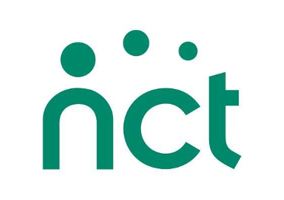Georgette Mulheir, the chief executive of Lumos, a charity founded by the author JK Rowling, is to step down after trustees identified management and culture challenges.
Trustees have also commissioned independent reviews into governance and culture.
Lumos, a charity which works to end systemic institutionalisation around the world, was founded by the Harry Potter author in 2005. Rowling stood down as a trustee in 2013 but continues to be the charity’s president.
In a statement its chair, Neil Blair, said: “Recently the board of trustees has identified some management and culture challenges facing Lumos that require immediate action.
“As the charity has grown at pace following a period of important progress in its global mission, the nature and complexity of the CEO role has also scaled.
“The board believes the time is right for new leadership. Georgette Mulheir will therefore step down as CEO and hand over her current leadership, operational and managerial responsibilities after a short period.”
An executive leadership team will run the charity with an interim managing director while the charity recruits a new chief executive.
Blair said the charity will “take all necessary steps in response to the findings” of the independent reviews and that “the board’s total focus is on ensuring the charity’s staff have all the support they need to continue their important work”.
New role
Mulheir joined Lumos in 2007 as operations director and became its chief executive 2011. She will continue to be involved with the charity as a global strategic adviser.
“The trustees are very grateful to Georgette for her work to date and are therefore pleased to confirm that she will be taking on a new global strategic advisory role for the charity in the coming months. This will ensure that Lumos continues to benefit from her unparalleled experience in the field of deinstitutionalisation,” Blair added.
Lumos had an income of £8.5m for the financial year to December 2017, more than double what it had in December 2014, when its income was £3.2m.
It operates a “100 per cent pledge” – meaning that 100 per cent of donations from the public “go straight to our programmes” because its operating costs are covered by Rowling and other funders.
Last year the charity received just under £1m from individual giving, £4.3m from grant-makers and £2.7m from royalties.
It has around 90 employees and the highest paid employee earned between £160,000 and £170,000.
Negative reviews
The charity has received 10 reviews on the employee ratings website, Glassdoor, and has an overall score of 2.4 out of 5.
A number of the reviewers complain of being overworked.
One current employee, which gave the charity a score of 4, said: “The recent change programme has been hard on teams, and teams do have a lot of work to deliver for children. A further prioritization is needed to ensure the small but mighty team we have doesn't become further overworked. The communication team should work hard on internal communication projects to improve that internally.”
But a former employee, who gave the charity a score of 2, said there was “borderline bullying” that was ignored by HR and said there was “no training or support offered to staff”.
Another, who scored the charity 1, said: ”Senior management are like headless chickens and don't know whether they're coming or going.”
They accused the charity of nepotism and said: ”Many employees are overworked and underpaid. * The HR and Finance teams are a joke and very disorganised. * Morale and job satisfaction amongst most of the team is very low.”
Others also criticised the senior management team, with one describing it as “totally toxic” with people “crying in the toilets” and finding it difficult to progress in their careers, accusing bosses of prejudices.
But some people defended the charity.
One reviewer, who scored the charity 4 out of 5 in May, said: “The cause is important and motivates us all. The people are the best asset - across the world, colleagues are expert, caring and helpful. Projects are interesting and challenging. Change is happening and improvements are being made in many areas to support the culture of this growing organisation.
“The recent restructure has been hard on staff, however the majority can see the rationale and that improvements are being made. The negative aspects of some previous reviews are isolated and are not shared by those who remain.”
|
Related articles












